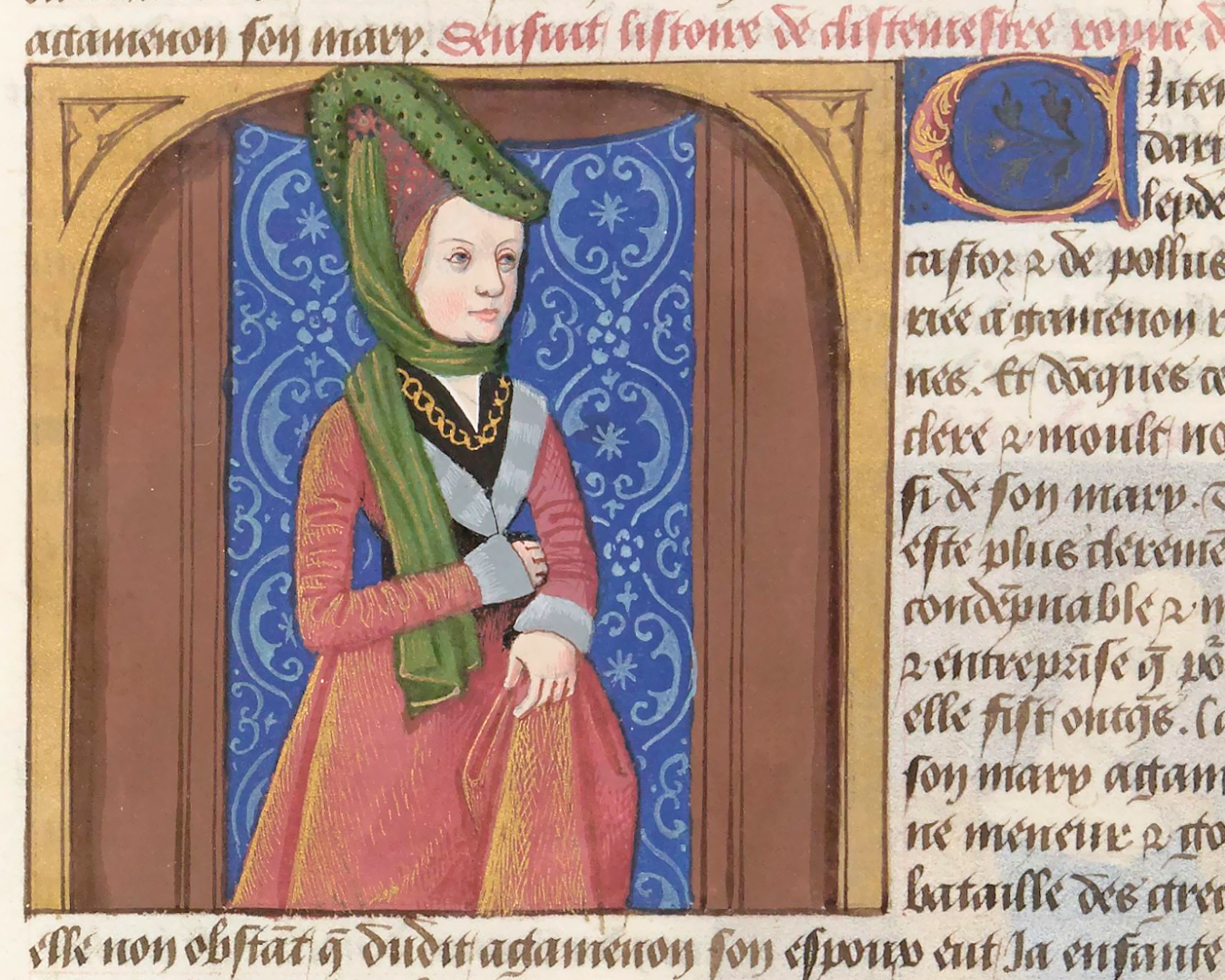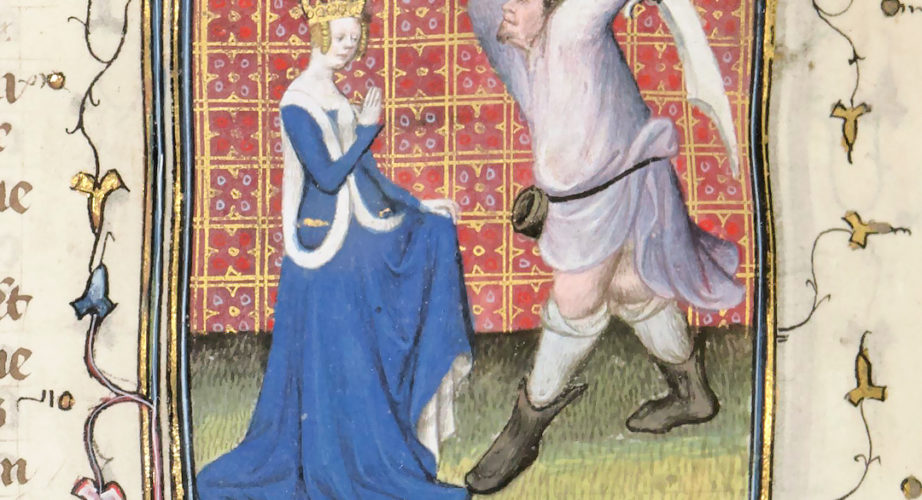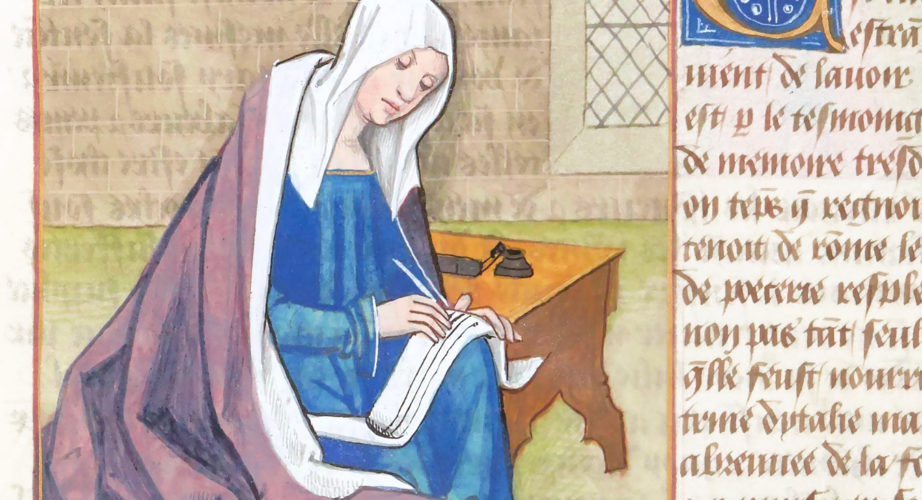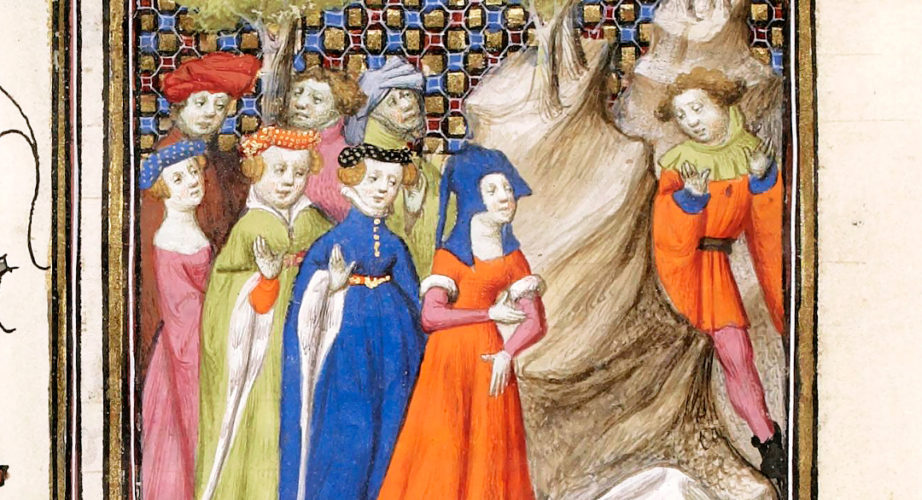Clytemnestra

After a short Spring (and Easter) break, we are back with our weekly Women's Wednesday! Our guest this time is Clytemnestra, daughter of Tyndareus and Leda, the King and Queen of Sparta, and later wife of Agamemnon.
We had the chance to briefly talk about Clytemnestra's birth last year, while explaining the myth of Castor and Pollux, her twin brothers together with Helen: as the story goes, Castor and Clytemnestra were fathered by Tyndareus, while Helen and Pollux were fathered by Zeus. On the House of Tyndareus, moreover, stood a curse made by Aphrodite herself, as the King had once forgotten to make a sacrifice in her name: the goddess thus made so that his daughters (Helen, Timandra, and Clytemnestra herself) would become famous for their infidelity.
Clytemnestra's first husband was Tantalus, king of Pisa, later killed in battle by Agamemnon. The woman thus married the very killer of her husband and became queen of Mycenae; this union generated four children: Iphigenia, Electra, Orestes, and Chrysothemis. At the beginning of the Trojan War, the goddess Artemis demanded the sacrifice of Iphigenia in order to let Agamemnon's fleet sail. The king, without the consent of Clytemnestra, arranged the sacrifice and tricked his daughter into following him: the girl was saved by Artemis herself, who kidnapped her instead of killing her. Clytemnestra, however, felt deeply betrayed by her husband's actions: while he was at war, the woman began an affair with Aegisthus, Agamemnon's cousin. The last straw was, however, upon her husband's return after the war: the king, in fact, had brought with him the Trojan princess Cassandra as his concubine. Completely enraged, Clytemnestra, together with her lover, killed both Agamemnon and Cassandra . After the murders, Aegisthus replaced Agamemnon as king and ruled for seven years with Clytemnestra as his queen; the woman, however, was later killed by her own children, Electra and Orestes.
“Clytemnestra”, illumination from the manuscript “De Mulieribus Claris”, decorated by Robinet Testard, ms. Français 599, f. 29v, 1488-1496, Bibliothèque nationale de France, Département des Manuscrits, Paris.
Historically and mythologically speaking, being in a powerful position (and perhaps also a…
The time has finally come for the very first Women’s Wednesday of 2021!…
Welcome back to another Women’s Wednesday! Our weekly Mulier Clara, much like Sappho…


